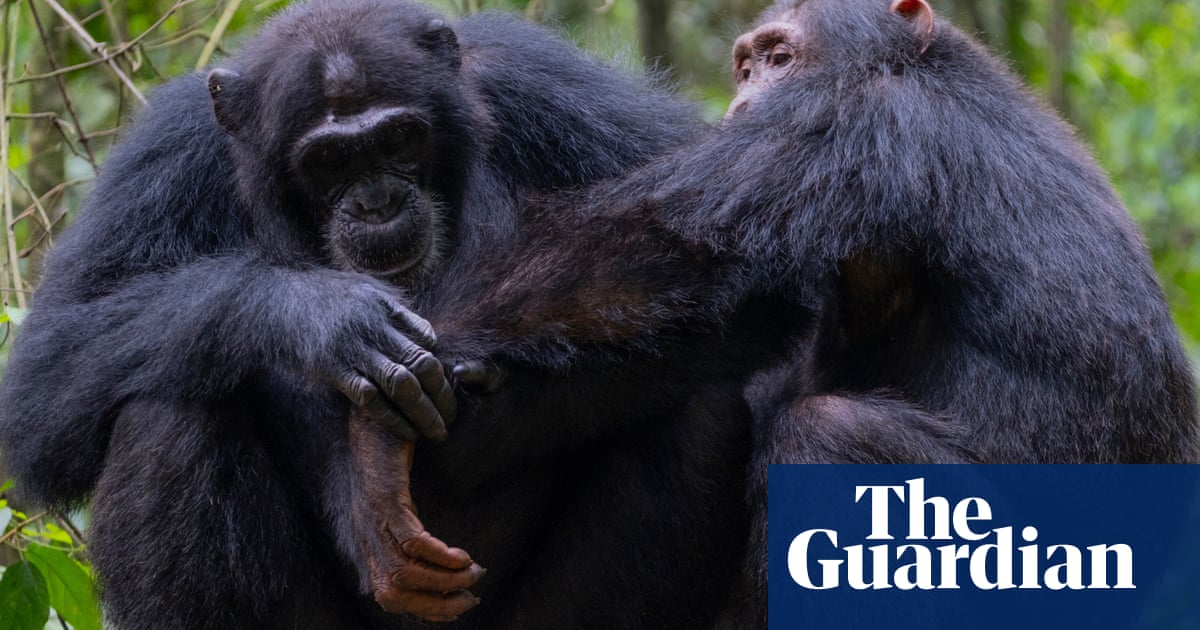Chimpanzees use sheets to wipe the tramps and clean after sexual relations, study results | Environment

Humans are not unique to have a crowd of hygiene and health care habits, researchers have discovered: the chimpanzees are also wiping the bottom, also dealt with injuries and even cleaning after sex, according to a new study.
The research of the University of Oxford is not the first to show that the great apes take care of themselves. Scientists have already found that the chimpanzees used insects to treat their own injuries and those of others, while orangutans were observed by treating wounds with sap and leaf jarled with plants with known medicinal properties.
However, researchers say that their study offers new information on such behavior in chimpanzees, revealing that they are also applying plant material matched with their injuries and suggest that healthcare care could be more widespread among these primates than we thought before.
“We, humans, like to imagine unique in many ways. And I think that for a long time, we thought that health care was one of the ways we, humans, are special, “said Dr. Elodie Freymann, one of the authors of the study.
But, she added, studies such as new works show animals in nature know how to take care of themselves-and use such skills on others-when they are sick or injured.
This added Freymann, not only has implications for the origins of modern human health systems, but also for the very abundant idea that non -human animals are capable of empathy or altruism.
“I think that the more cases we find animals to help each other without any immediate advantage, the more evidence we comply to show that it is something that is not as only human as we think it in the past,” she said.
Write in the journal Frontiers in ecology and evolutionFreymann and his colleagues report how they studied the communities of Sonso and Waibira de Chimpanzees in East Africa in the forest of Budongo in Uganda.
The team combined new observations from a period of four months for each community with observations from the SONSO community recorded over three decades.
The data revealed that the chimpanzees were generally injured either by fighting with each other, or by collas, the team identifying 23 cases of personal care for injuries in the two communities, ranging from licking injuries, stammering with leaves and pressing with fingers, the application of chewed sheets.
“Some of the plants that chimpanzees seem to aim to apply to their own injuries have experienced wound healing properties and have also experienced bioactive properties related to healing or prevention of infection wounds,” said Freymann, although she said that he was not clear if the chimpanzees were aware of these attributes.
The chimpanzees have also engaged in other forms of personal care such as the use of leaves to wipe their genitals after sex – or their buttocks after having a poop – while removing collars from themselves.
The team also found that the cases of chimpanzees in the SONSO community help each other – even when they are not linked – with actions including the withdrawal of a trap, injuries and – in one case – erase the penis of a peer after sex.
Dr. Caroline Schuppli, of the Max Planck Institute of Animal Behavior in Germany, which was not involved in the study, said that research was precious and informative, and will help guide future researchers to identify key behavior in the field.
Schuppli has also noted that the existence of such behaviors in chimpanzees has implications for the origins of health care in humans.
“I think that means with certainty that the cognitive capacities you need to perform these behaviors, they are shared between humans and chimpanzees,” she said. “And it is very likely that our common ancestors already had these capacities.”





